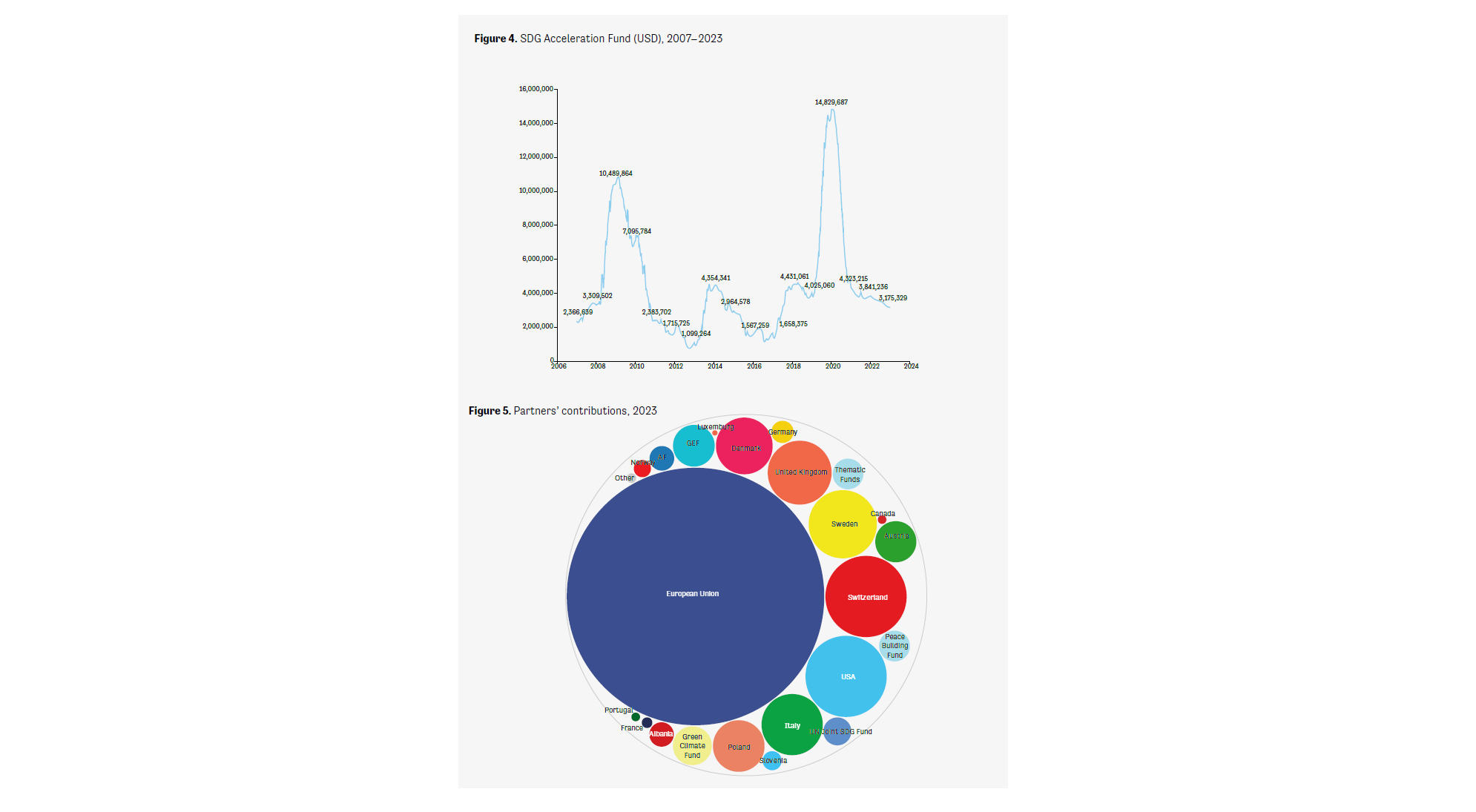For implementation of UNSDCF 2022–2026 in 2023, the 19 UN agencies in Albania had a budget available of USD 87 million, with core resources of USD 5.5 million (6%) and mobilised resources of USD 81.5 million (94%). The utilisation rate by the end of 2023 was 69 percent: i.e. the UN system delivered interventions worth USD 60 million, with the balance carried over into 2024 (Figure 1).

The non-core budget in 2023 consisted of contributions to the Albania SDG Acceleration Fund (Figure 2) and bilateral contributions mobilised through agreements with individual UN agencies (Figure 3) at the country level, regionally and globally.[1]


Figure 4 shows that the largest financial portfolio continues to be that of Human Capital Development, followed by Green Growth, Innovation, Climate Change, Governance, Rule of Law and Human Rights, and Gender-responsive Governance.

At the Output level (Figure 5), delivery was largest for outputs 1.2 Education, and 2.2 Sustainable and resilient economic growth and green and blue economy transition, in line with the UN response to the country needs to address recovery from the 2019 earthquake.
The EU remains the strongest institutional partner of the UN system in Albania (Figure 7). Other bilateral donors supported the UN interventions with a total of USD 77 million, with USD 6.7 million from UN core, pooled and thematic funds, with fundraising reaching USD 4.3 million from global vertical funds such as the Adaptation Fund, the Global Climate Fund, the Global Environment Facility and the Peace Building Fund.
[1] Partners contributions implemented in 2023 consisted of new resources raised in 2023 or earlier and carried over for implementation in 2023.

